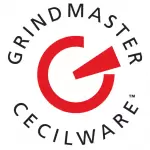Food Equipment Service Throughout Pennsylvania
Is your commercial kitchen equipment in need of service or repair? K&D Factory Service provides all types of service for commercial kitchen equipment from Altoona to Allentown, PA.
Our commercial kitchen equipment technicians are factory trained and experts in their field. They are manufacturer certified and receive special training to correctly repair any type of commercial cooking equipment.
K&D also has a full department of fully trained refrigeration and HVAC technicians to take care of problems that may arise before they have the chance to affect your business with equipment downtime.
Any Part, Anywhere
Our parts department specializes in identifying and retrieving the correct parts for your business needs. We have trained parts specialists in every one of our seven branches.
We carry a stock inventory of over 1,000,000 parts and can access any part quickly. And if for some reason we do not have your part in stock, we will order it straight from the manufacturer to be shipped to you or to any one of our local branches.
Call K&D Today
Let K&D Factory Service take care of your commercial cooking equipment. Our experience, history and relationships with a wide array of commercial cooking equipment manufacturers speak for themselves. If you need your equipment serviced, contact K&D today. 717-236-9039
Food Service Equipment Service FAQs
Basic replacement thermometers might cost around $10 to $30, while more advanced digital or specialized thermometers can range from $30 to $100 or more. Factors such as brand, features, and accuracy contribute to the price. It's recommended to consider your specific needs and budget while shopping for a replacement oven thermometer for your restaurant.
Uneven cooking in a restaurant fryer can be attributed to various factors. Uneven oil temperature due to poor circulation or thermostat issues can cause uneven cooking. Uneven distribution of food in the fryer basket can lead to varying cooking times. Overloading the fryer can lower the oil temperature and hinder even cooking. Insufficient oil levels can cause hot spots and inconsistent results. Regular maintenance, proper frying techniques, and adjusting cooking times can help address these issues and ensure more consistent cooking in restaurant fryers.
Deciding whether to repair or replace a malfunctioning burner on a restaurant stove depends on things like the extent of the issue, the age of the stove, and the cost of repairs versus replacement. If the repair cost is reasonable and the stove is relatively new, repairing the burner might be a viable option. However, if the stove is older and frequent repairs are becoming a pattern, it might be more cost-effective to consider replacing the stove to ensure consistent and efficient cooking performance.
To maximize the lifespan of restaurant cooking equipment, implement regular cleaning and maintenance schedules following manufacturer guidelines. Routinely inspect for signs of wear, addressing issues promptly to prevent further damage. Train staff on proper usage and care techniques, emphasizing gentle handling and avoiding misuse. Invest in high-quality equipment suited for your restaurant's workload and consider preventive maintenance contracts with professional servicing. Implementing proper ventilation and monitoring cooking equipment performance can also mitigate premature wear and ensure optimal functionality, extending equipment lifespan and reducing operational costs.
Restaurant kitchen equipment requires regular servicing and maintenance based on usage, manufacturer guidelines, and local regulations. Heavy-use appliances like grills may need monthly check-ups while others can suffice with quarterly servicing. Adhering to seasonal demands and health standards is crucial. Routine inspections help spot issues early. Professional servicing by certified technicians, ideally twice a year, ensures thorough checks and adjustments. Staff should also be trained for basic maintenance tasks. Overall, proactive upkeep minimizes downtime, prolongs equipment lifespan, and ensures food safety compliance.
Ensuring compliance with health and safety regulations for your food service equipment involves several key steps.
- First, regularly inspect and maintain all equipment according to manufacturer guidelines.
- Keep detailed maintenance records and ensure all repairs are promptly addressed.
- Train staff on proper equipment usage and cleaning procedures.
- Implement a routine cleaning schedule to prevent contamination.
- Stay updated on local health codes and industry standards, and conduct periodic audits to ensure adherence.
- Using certified, commercial-grade equipment also helps meet regulatory requirements and promotes a safe, compliant food service operation.























































































































